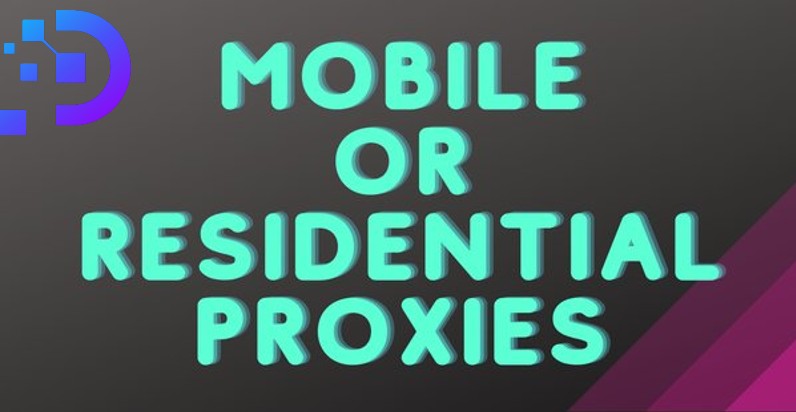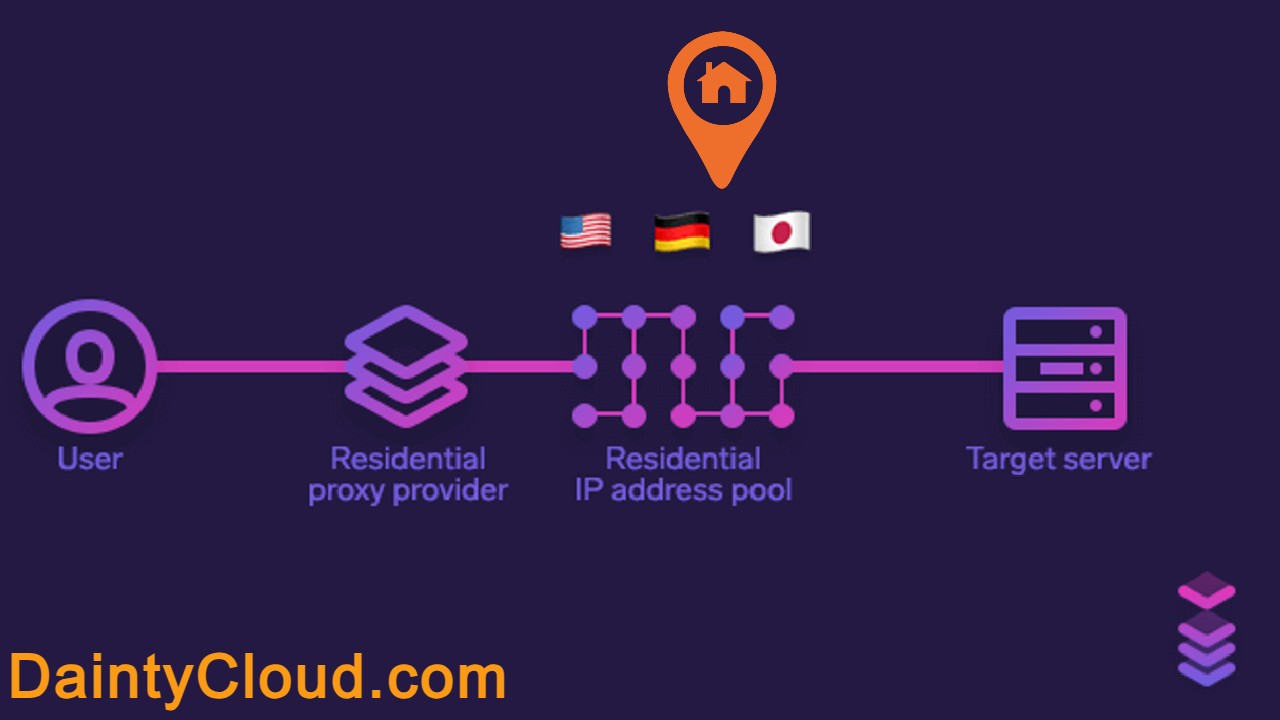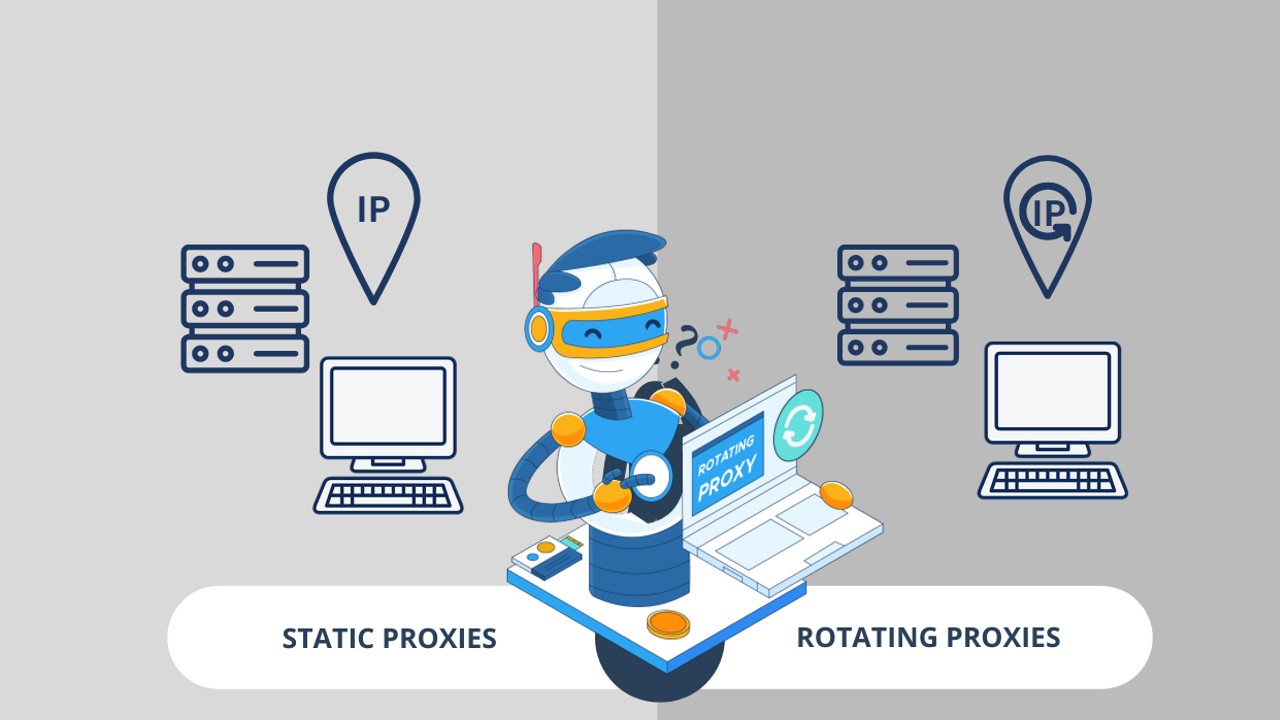Why should you use Residential and Mobile Proxies?

In today’s digital landscape, online privacy and security have become paramount. With the rising concerns over data breaches, identity theft, and restricted access to certain websites, individuals and businesses are turning to innovative solutions like residential and mobile proxies. These proxies offer a range of benefits, from enhanced anonymity to unrestricted access to geo-blocked content. In this article, we will delve into the world of residential and mobile proxies, exploring why they are gaining popularity and how they can benefit users.
Understanding Residential Proxies
Residential proxies serve as intermediaries between your device and the internet. Unlike datacenter proxies, which are created in cloud servers, residential proxies use IP addresses associated with real residential devices. By routing your connection through these legitimate IPs, residential proxies help mask your identity and provide a higher level of anonymity online.
Enhanced Online Privacy and Security
With cyber threats lurking around every corner, safeguarding your personal information and online activities is crucial. Residential proxies offer an effective means of protecting your privacy by hiding your real IP address and encrypting your data. By doing so, they shield you from potential hackers, malicious websites, and data-collection entities.
Unrestricted Access to Content
Many websites and online platforms implement location-based restrictions or geoblocks, limiting access to their content based on the user’s geographic location. This can be frustrating, especially when trying to access region-specific content or bypassing censorship in certain countries. Residential proxies come to the rescue by allowing you to connect through an IP address from a specific country or region, granting you access to the desired content without any hindrances.
Web Scraping and Data Harvesting
Web scraping has become an indispensable tool for businesses and researchers who rely on extracting data from various websites. However, excessive scraping activities can lead to IP blocking or CAPTCHA challenges. Residential proxies offer a solution to this problem by rotating IP addresses and distributing requests across multiple devices. This way, you can scrape data without the fear of being detected or blocked.
Sneaker Bots and E-commerce
The world of sneaker collecting and reselling is highly competitive, with limited-edition releases selling out within minutes. Many collectors and resellers employ sneaker bots to automate the purchasing process. However, e-commerce platforms are wary of such activities and often impose purchase limits or IP bans. Residential proxies allow users to circumvent these restrictions by rotating IPs and appearing as regular customers, increasing their chances of securing coveted sneakers.
Social Media Management and Automation
Social media has become a powerful marketing tool, and managing multiple accounts efficiently is a necessity for businesses and influencers. However, platforms like Instagram and Twitter have strict anti-automation measures in place, making it difficult to handle multiple accounts simultaneously. Residential proxies enable users to distribute their activities across various IPs, avoiding suspicion and ensuring smooth management of multiple social media accounts.
Distinguish between static residential proxies and rotating ip residential proxies
Static Residential Proxies
Static residential proxies are IP addresses assigned to residential devices, such as computers or mobile devices, that are not in active rotation. These proxies are tied to a specific residential location and do not change unless there are changes in the internet service provider or network configuration of the residential device. Static residential proxies provide consistent and stable IP addresses, which can be advantageous for certain applications that require a fixed IP for authentication, access control, or maintaining session data.
Rotating IP Residential Proxies
Rotating IP residential proxies, also known as rotating residential proxies or backconnect proxies, are a type of proxy network that automatically changes the IP address assigned to a connection at regular intervals. These proxies are typically managed by proxy providers and use a pool of residential IP addresses. Each time a connection is made through a rotating IP residential proxy, the IP address changes to a different residential address from the pool.

Rotating IP residential proxies offer dynamic and diverse IP addresses, which can be beneficial for tasks that require high anonymity, circumventing IP blocking or rate limiting, web scraping, and other activities that benefit from IP rotation. The rotation can occur on a fixed schedule (e.g., every few minutes) or be triggered by specific events or criteria, such as the number of requests made or a set time interval.
In summary, the main distinction between static residential proxies and rotating IP residential proxies lies in the stability and consistency of the IP addresses. Static residential proxies offer fixed IP addresses tied to a specific residential location, while rotating IP residential proxies provide dynamic IP addresses that change regularly from a pool of residential addresses. The choice between these proxies depends on the specific use case and requirements of the application or task at hand.
Exploring Mobile Proxies
While residential proxies offer tremendous benefits, mobile proxies take online anonymity and freedom a step further. These proxies utilize 3G or 4G connections from mobile network providers, granting users the ability to browse the internet through mobile IP addresses.
Dynamic IP Addresses
One significant advantage of mobile proxies is the dynamic nature of IP addresses. As mobile devices move between different locations or cell towers, the IP address associated with them changes. This constant rotation of IPs adds an extra layer of anonymity, making it challenging for websites or tracking systems to pinpoint your exact location or identify you.
High-Quality Connections
Mobile proxies provide reliable and high-speed internet connections due to their reliance on mobile network providers. These providers prioritize delivering seamless browsing experiences to their customers, ensuring fast loading times and minimal latency. By using mobile proxies, you can enjoy the benefits of both privacy and performance.
Geo-Unblocking and Local SEO
For businesses operating in multiple locations or marketers focused on local SEO, mobile proxies are invaluable. By connecting through different mobile IPs associated with specific regions, businesses can test localized ads, access region-specific search results, and analyze their websites’ performance from various geographical perspectives. This gives them a competitive advantage and helps tailor their strategies to specific markets.
App Testing and Development
Mobile app developers often face challenges when testing their applications in different locations or simulating user experiences from diverse networks. Mobile proxies simplify the process by enabling developers to connect through mobile IPs around the world. This allows them to identify and resolve any location-specific issues, ensuring their apps function seamlessly for users across different regions.
Ad Verification and Security
In the realm of digital advertising, ad fraud is an ever-present concern. Advertisers and publishers need reliable tools to verify the legitimacy of ad placements and protect themselves from fraudulent practices. Mobile proxies offer a way to verify ad visibility and integrity from different locations, safeguarding budgets and ensuring campaigns reach their intended audience.

FAQs about Residential and Mobile Proxies
Q: Are residential proxies legal to use? A: Yes, using residential proxies is legal. However, it’s essential to use residential proxies responsibly and abide by the terms of service of the websites or platforms you access through them. Engaging in illegal activities or violating the terms of service can have consequences.
Q: How do residential proxies differ from datacenter proxies? A: Residential proxies utilize IP addresses associated with real residential devices, offering a higher level of anonymity and legitimacy. On the other hand, datacenter proxies are created in cloud servers and lack the authenticity of residential IPs. Datacenter proxies are generally faster but may be more easily detected and blocked by websites.
Q: Can I use residential proxies for gaming? A: While residential proxies can provide some level of anonymity, they may introduce additional latency due to routing your connection through different devices. This increase in latency can negatively impact your gaming experience. It’s recommended to use dedicated gaming VPNs or services specifically designed for gaming purposes.
Q: Are mobile proxies only useful for mobile devices? A: Mobile proxies are primarily associated with mobile devices due to their reliance on 3G or 4G connections. However, they can also be used on desktop or laptop computers by tethering your device’s internet connection. This allows you to enjoy the benefits of mobile proxies on non-mobile devices as well.
Q: Do residential and mobile proxies guarantee complete anonymity? A: While residential and mobile proxies provide an additional layer of anonymity, they do not offer foolproof protection. Websites and platforms are continuously improving their detection methods, and sophisticated tracking techniques exist. It’s important to use proxies in conjunction with other privacy tools like VPNs, encrypted messaging apps, and secure browsing practices.
In an increasingly interconnected and privacy-conscious world, residential and mobile proxies offer valuable solutions to protect personal information, bypass restrictions, and enhance online experiences. Whether you’re an individual seeking greater privacy or a business looking to optimize marketing strategies, these proxies provide the means to navigate the digital landscape more effectively. However, it’s essential to use residential and mobile proxies responsibly, respecting the terms and conditions set by websites and platforms.
Embracing the power of residential and mobile proxies allows users to reclaim control over their online presence, unlock geo-restricted content, and conduct business operations with enhanced security. As technology advances, the demand for proxies will likely continue to grow, shaping the way we interact with the internet in the future.

